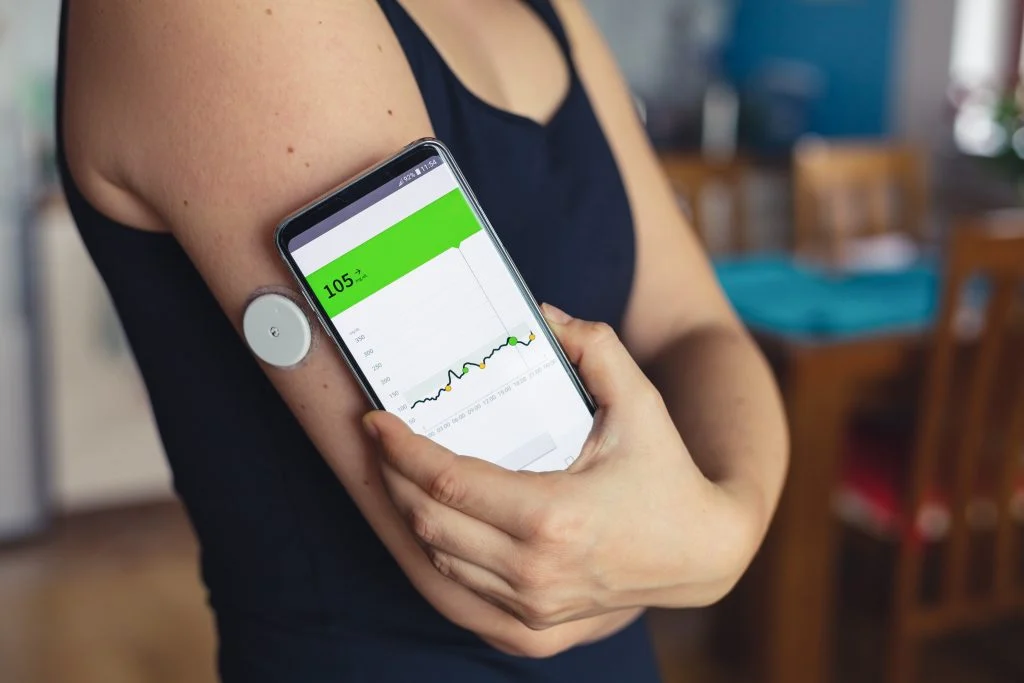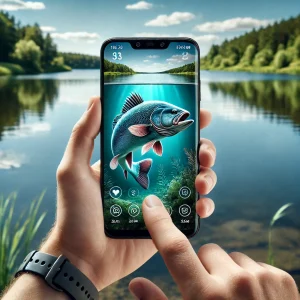In the modern world, technology has advanced by leaps and bounds, especially in the area of health. One of the most notable advances is the development of smartphone apps that allow you to monitor various aspects of your health, including your blood glucose. For people with diabetes or those who need to keep strict control of their glucose levels, these apps represent a valuable and accessible tool.
Using these apps can make life significantly easier for users, providing a practical and efficient method to check their health conditions in real time. This article explores the best apps available for measuring glucose on your cell phone, discussing their features and how they can help control diabetes.
Exploring the Best Apps
There are several apps on the market that offer glucose monitoring capabilities, each with its own specific features and benefits. Let’s take a look at some of the most popular and effective ones.
The Importance of Technology in Diabetes Management
Using technology to manage diabetes provides a range of benefits, including more accurate glucose readings, better tracking of health history and the ability to share information with healthcare professionals in real time. These apps have become indispensable tools for many people, providing more effective control of the disease and a better quality of life.
GlucoMe Digital Diabetes Clinic
GlucoMe is a revolutionary app that transforms diabetes management. With a user-friendly interface, it allows users to log their glucose measurements and view progress graphs. Additionally, the app provides personalized advice based on user input, helping users make informed health decisions.
This application also facilitates communication between patients and healthcare professionals, allowing the sharing of health data in real time. This feature is essential for effective and personalized medical monitoring.
mySugr: Diabetes Tracker Log
mySugr is a highly interactive and fun glucose monitoring app. Its playful, gamified design helps make diabetes management less tedious. The app allows users to track not only their glucose levels, but also their carbohydrate intake, medication, and physical activity.
Additionally, mySugr provides detailed reports that can be shared with the user's physician, facilitating productive discussions during medical appointments and helping to adjust the treatment plan as needed.
Diabetes
Diabetes is another standout diabetes management app, offering a range of powerful glucose monitoring tools. It includes reminders to check blood pressure and take medication, ensuring users stay on track with their health routine.
The app is also capable of predicting blood sugar trends based on historical data, an advanced feature that can prevent episodes of hypoglycemia or hyperglycemia before they occur.
Glucose Buddy Diabetes Tracker
Glucose Buddy is a comprehensive app that not only tracks blood sugar, but also blood pressure, weight, and other important vital signs. It easily syncs with other health devices, making it a convenient choice for those looking for an integrated digital health solution.
This app also has an active community where users can share experiences and tips, offering additional support for those dealing with diabetes on a daily basis.
Dario Health Diabetes Management
Dario Health stands out for its simplicity and effectiveness. It comes equipped with a measuring device that connects directly to the user's smartphone, providing instant glucose readings without the need for additional devices.
Its app allows for easy tracking and trend analysis, as well as offering personalized insights that help users better understand their condition and how different aspects of their lives affect their glucose levels.
Integrating Glucose Monitoring Applications with Healthcare Systems
One of the most significant developments in digital health technology is the ability for glucose monitoring apps to integrate with broader healthcare systems. This integration offers an opportunity to significantly improve diabetes management by facilitating communication between patients and healthcare professionals and enabling a more proactive approach to treating the condition.
Improved Doctor-Patient Communication
Integrating glucose monitoring apps with electronic medical record systems (EMRs) allows clinicians to access patients’ glucose data in real time. This can significantly improve communication between clinicians and patients, as healthcare professionals can provide immediate feedback and adjust treatment plans based on the data collected by the app. This rapid responsiveness can be crucial to preventing complications and managing diabetes more effectively.
Contribution to Evidence-Based Medicine
Large-scale data collection by glucose monitoring apps can be analyzed to identify patterns and trends across different patient populations. This analysis can contribute to evidence-based medicine by helping to formulate treatment guidelines that are informed by a large, real-time data set. Additionally, insights generated from app data can advance diabetes research by offering new insights into the effectiveness of treatments and management strategies.
Data Integration Challenges
Despite its advantages, integrating glucose monitoring apps with healthcare systems faces significant challenges, mainly related to data security and privacy. It is vital that all data transfers are protected with strong encryption to prevent unauthorized access. In addition, it is essential to ensure that data sharing complies with data privacy laws such as HIPAA in the US and GDPR in Europe.
Personalizing Diabetes Treatment
Finally, integrating glucose data collected by apps into daily diabetes care enables unprecedented personalization of treatment plans. Clinicians can use the data to adjust medications, recommend dietary or lifestyle changes, and monitor how different approaches affect a patient’s glucose levels, all in a more dynamic and personalized way.
The integration of glucose monitoring apps into healthcare systems is a growing trend that promises to transform the way diabetes is managed. By leveraging digital technology to facilitate better and faster communication between patients and clinicians, and to inform research and treatment, we can expect to see significant improvements in the quality of life for people with diabetes and the effectiveness of medical interventions.

Additional Features
In addition to basic glucose monitoring, these apps offer a variety of features that can help with diabetes management. Medication alerts, customizable reports, integration with health monitoring devices, and online community support are just a few of the features available. These features are designed to not only simplify users’ lives, but also promote more proactive and informed health management.
Conclusion
Mobile glucose monitoring apps are revolutionizing the way diabetes patients manage their condition. With features ranging from simple monitoring to complex analytics and community support, these technological tools offer a new era of autonomy and control for people living with diabetes. Taking the time to choose the right app can make a big difference in quality of life and effective health management.
Common questions
- How do these apps ensure the accuracy of glucose data? The accuracy of data in glucose monitoring apps depends on both the quality of the measuring devices used and the technology of the app itself. Many apps are designed to be compatible with specific glucose meters that meet strict regulatory standards to ensure accuracy. Additionally, some apps offer functionality to calibrate the measuring devices and validate the results, ensuring that the data is reliable.
- Is it safe to share health data with apps? The security of sharing health data depends on the privacy policies and security measures implemented by the app developers. It is crucial to choose apps that follow strict data protection regulations, such as GDPR in the European Union or HIPAA in the United States. Users should always review the apps’ privacy policies to understand how their data will be used and protected.
- Can these apps replace regular doctor visits? No, these apps are not intended to replace regular medical appointments. They are designed to be supportive tools that help with daily monitoring of the condition, but professional medical follow-up is essential for proper treatment. The apps can complement prescribed therapy by providing information that may be useful during medical appointments, but they are not a substitute for professional medical advice.
- How to choose the right diabetes monitoring app? When choosing a diabetes tracking app, consider factors such as compatibility with other medical devices you use, ease of use of the interface, features offered, and user reviews. It’s also important to check whether the app meets legal requirements for data security and privacy. Evaluating whether the app offers technical support and additional educational resources can also be a key differentiator.
- What are the main advantages of using glucose control apps? Key benefits include the convenience of monitoring glucose levels in real time, the ability to record and analyze trends over time, and the ability to share this information with healthcare professionals to improve disease management. Additionally, many apps offer additional features, such as medication reminders, nutritional advice, and psychological support, which can help with overall diabetes management.



